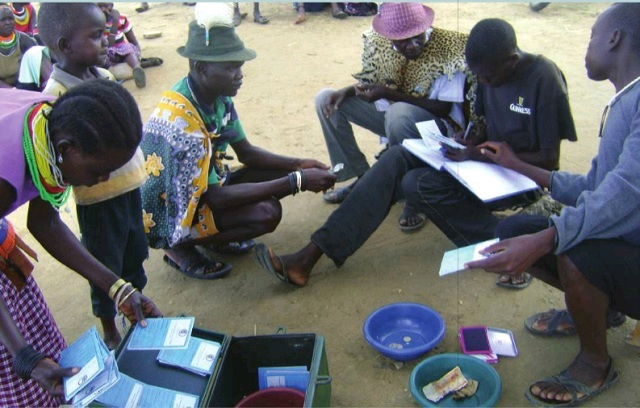
KOTIDO - In a region where tradition holds the weight of law and a woman’s worth is often measured in cattle, a quiet revolution is taking shape. In Kotido, Karamoja sub-region, women are turning Village Savings and Loan Associations (VSLAs) into powerful platforms for resistance, challenging widow inheritance, demanding land rights, and exposing inefficiencies in government initiatives such as the Parish Development Model (PDM).
What began as simple efforts to pool savings for livestock and seeds has evolved into a grassroots movement, one that is reshaping power structures and redefining womanhood in one of Uganda’s most patriarchal frontiers.
In Karamoja, widow inheritance remains a deeply entrenched cultural practice. When a husband dies, his widow is often "inherited" by a male relative—sometimes even a son from another wife—to ensure dowry obligations remain within the clan.
For women like Angella Maria, the practice has been a cycle of loss and disempowerment.
“My husband paid 30 head of cattle as dowry. When he died, I was inherited by his brother. When he died, I was passed to another. I had no choice,” she recalls.
Lotyang Agnes Lokiru shares a similar story:
“The man was not my choice, but I couldn’t refuse. The elders wouldn’t listen. Their minds are on cattle.”
These women are not alone. Across Kotido, many widows have suffered under the weight of tradition until now.
One of the most transformative examples is the Kalokuruk VSLA, headed by Lokwang Peter. Originally established to help women save and access small loans, it has grown into a forum for legal education, solidarity, and strategic resistance.
“We started saving to buy goats and seeds,” says Lokwang. “But we realized we could also use our meetings to talk about women’s pain—and their power.”
Through their VSLA, women have launched a Women’s Network Forum, allowing them to influence clan decisions despite being barred from sacred shrines where marriage decisions are made. The wives of male elders now act as conduits, relaying concerns from the women to decision-makers.
“We must hold the decision-makers accountable,” Lokwang insists. “We are creating a safe space for girls and women to thrive.”
Cultural backlash has been swift. Kapeps Akore John Bosco, an elder in Kotido, defends the practice:
“A man who enters the house of a widow before inheritance rituals may fall sick. The inheritor must be chosen from within the family.”
Even so, he concedes that some aspects—like sons inheriting stepmothers—are “inappropriate” and currently under review.
Despite resistance, women-led VSLAs are steadily gaining ground. They are now:
Promoting financial literacy and business skills
Monitoring the use of PDM funds at the local levels
Supporting widows in accessing government aid
Advocating for transparency and inclusive governance
“We are not just saving money,” says Koryang, a VSLA member. “We are saving each other—and saving the system from failure.”
The Ugandan government, alongside development partners, is beginning to recognize and support these grassroots efforts. Through programs like the GROW Project and PDM, women-led VSLAs are gaining access to training, credit, and leadership opportunities.
Charles Ichogor, the Resident District Commissioner of Kotido, sees a shift in the balance of power:
“Women are now able to challenge decisions made without their input. They’ve long suffered under oppressive cultural norms with little intervention.”
The results are tangible:
Dozens of widows have successfully rejected forced inheritance with VSLA backing
Women now hold positions on parish-level PDM committees
Legal awareness is spreading through peer-led community dialogues
But challenges persist: entrenched cultural norms, limited legal support, and weak monitoring mechanisms remain barriers to sustained progress.
Still, the women of Kotido are undeterred.
“We are not waiting for change,” says Lochoro, a local activist. “We are becoming the change.”
What’s unfolding in Kotido is more than a local rebellion—it’s a national case study in rural empowerment. By transforming financial cooperatives into advocacy platforms, women in Kotido are proving that economic inclusion and social justice are not mutually exclusive.
As Uganda pushes forward with its national development agenda, the voices of Kotido’s women, once silenced, are now helping to write the next chapter.